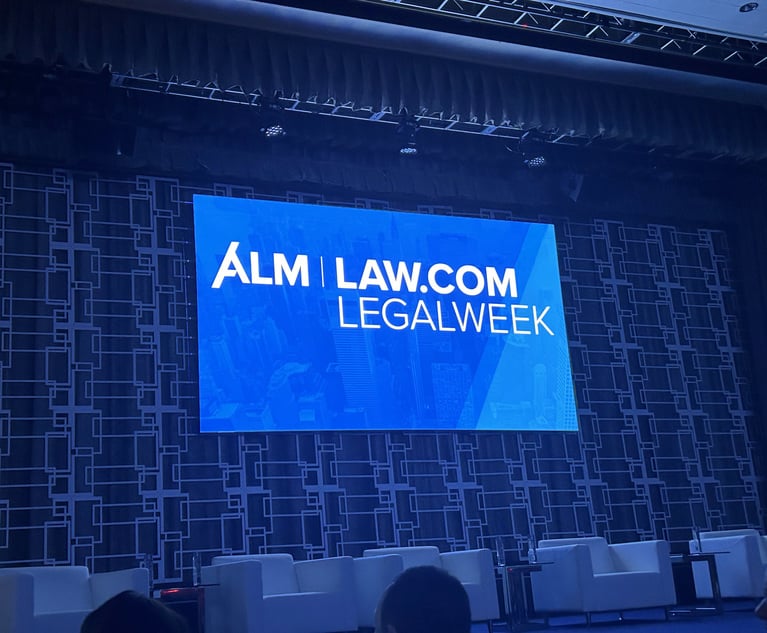In the 27 seasons John Wooden coached UCLA basketball, his teams won more than 80 percent of their games, including 10 NCAA titles and four perfect 30-0 seasons. To achieve these results, Wooden did not take the usual path. He didn’t talk about winning; he talked about success. He didn’t criticize; he felt that players responded better to encouragement and enfranchisement. He never yelled—not at players, not at referees. He was relentlessly calm and optimistic.
Wooden got the best out of his players by taking a better path, and it worked. Wooden set a high bar, and the GCs driving the Thought Leaders Experiment are trying to emulate his innovative, collaborative approach. Rather than using their position in the market to criticize or lecture firms, these GCs want to ask questions and encourage law firms so the legal industry can set itself on a better path. (This, by the way, is AdvanceLaw’s approach too—firms are inspired as strong feedback generates work from the 200+ GCs forming the collective.)
As the Open Letter from 25 GCs notes, a key ambition of the Experiment is “rewarding law firms that understand and embrace powerful client service,” as well as to “provide greater value to both [inside and outside counsel.]” Far from suggesting they have all the answers, the GCs confess, “we don’t know which in-house and law firm management approaches work best.” To us, these GCs demonstrate powerful leadership and an eye toward enfranchisement.
We bring this up because we’re at an exciting juncture. We have been collecting data from these GCs for over a year and have powerful insights to share with the wider legal community. The insights build off some of the GCs’ hypotheses (see an early conversation with six of them here), and the preliminary findings we shared in an industry-wide webinar (summarized in this Thomson Reuters piece).
Specifically, we’ll publish 10 articles (five by the GCs and five by AdvanceLaw) in March/April, and 10 more (again, five by the GCs and five by AdvanceLaw) in June/July. And at the GCs’ suggestion—as a testament to their spirit of enfranchisement—this spring we’ll bring together 20 or so of the smartest managing partners (from highly innovative firms) to receive their direction and input (and perhaps some of their data as well).
Across the industry, we want our work to fuel a conversation about how clients and firms can do their best together. In fact, at the end of 2018, we plan to bring together these GCs and managing partners, as well as key industry leaders for a Thought Leaders symposium, with actionable steps coming out of that meeting.
With an exciting year ahead of us, what sorts of conversations do we expect to take center stage? Here are a few:
· Client feedback. Clients don’t provide enough feedback to their law firms. When they do, performance improves. But what kind of feedback works? Our data shows that formal, check-the-box feedback doesn’t work well.
· Getting to know you. Clients who help law firms learn their business create better outcomes across a variety of measures. Some GCs tell us it’s why they prefer working with (eager) junior partners over more seasoned ones. We’re looking into the performance data here, which could have major implications for law firm management and client retention decisions.
· Location, location, location. A lawyer’s zip code tells us a great deal about his or her billing rate but, as it turns out, not much about quality of work, client satisfaction, or matter outcomes. How might this impact client selection practices, as well as law firm office location strategies?
· Flat fees work. Flat fees result in matters of equal or greater quality than what hourly fees generate, while creating more fee predictability and saving money. This looks to hold true across varied types of work.
· You can have it all. The most cost-efficient lawyers tend to score higher than other lawyers on quality and responsiveness. How can we identify these “triple-threat” lawyers, and can we replicate them?
· LPM intention vs. execution. Lawyers able to deliver quality and responsiveness at lower cost aren’t necessarily who you think. We’re hearing from a number of GCs that firms touting their process and project management skills don’t always deliver. We’re looking into the data to see where LPM really matters.
· Law firm panels are often poorly managed. Some practices clearly improve law firm panel performance, but clients do not consistently pursue those practices. We will break down what the data tell us.
· We have a divorce problem. Law firms and clients have a “honeymoon” period at the start of their relationship—but where it goes from there depends greatly on several factors. Our research has teased out some principles on how to keep the fire going for the long-run.
· Competition works. Matters that are competitively bid tend to outperform matters that are sole-sourced. However, there’s a right way to do this, and a way that does nothing except disenfranchise firms.
· Brand Recognition Doesn’t Predict Outcomes. “Nobody ever got fired for hiring _____.” Perhaps so. But lawyers at the most name-recognized firms aren’t necessarily out-performing others on key quality measures.
There is much more to report, and the implications of even the above are wide-ranging—potentially pointing us to new territory. For example, if there is little correlation between price and quality (as the data is showing), and if senior partners tend, on average, to perform no better than junior partners (something we’re still testing, but comports with the notion that the practice of law has changed over the past 20 years, now placing a heavy premium on bite-sized, fast-cycle advice focused on business objectives), the implications to the industry would be stunning. Across law firms, we would witness a shift in market share and greater price (and profit) arbitrage. Within law firms, one could imagine a significant impact on lawyer training and partner compensation.
While such findings would be uncomfortable, a better understanding of alternative fees and project management can help the industry move in a more positive direction overall in terms of pricing and staffing. Alternative fees and LPM reward a firm for building the ideal team without regard to exactly who does what. The team may be senior lawyers, junior lawyers—or not lawyers at all. Then the question is, “what’s the best mix?” And we want to learn and discuss that as well.
In any event, we wanted to give you a preview of what we’ve been uncovering since the fall, as well as to let you know that you can expect to see a number of insights across the coming weeks and months, in tandem with a major effort—based on the sage advice of our GCs—to further incorporate the managing partner community (as well as some of the data their firms can provide).
As the Experiment has grown more collaborative, it has grown more complex—but also more promising. Perhaps there’s something to collaborative disruption after all.
NOT FOR REPRINT
© 2024 ALM Global, LLC, All Rights Reserved. Request academic re-use from www.copyright.com. All other uses, submit a request to [email protected]. For more information visit Asset & Logo Licensing.












